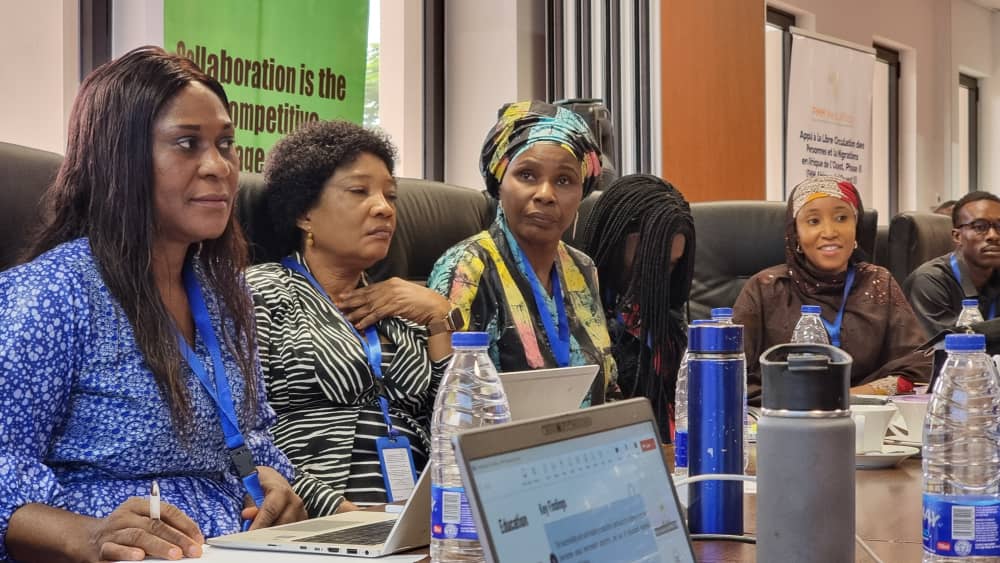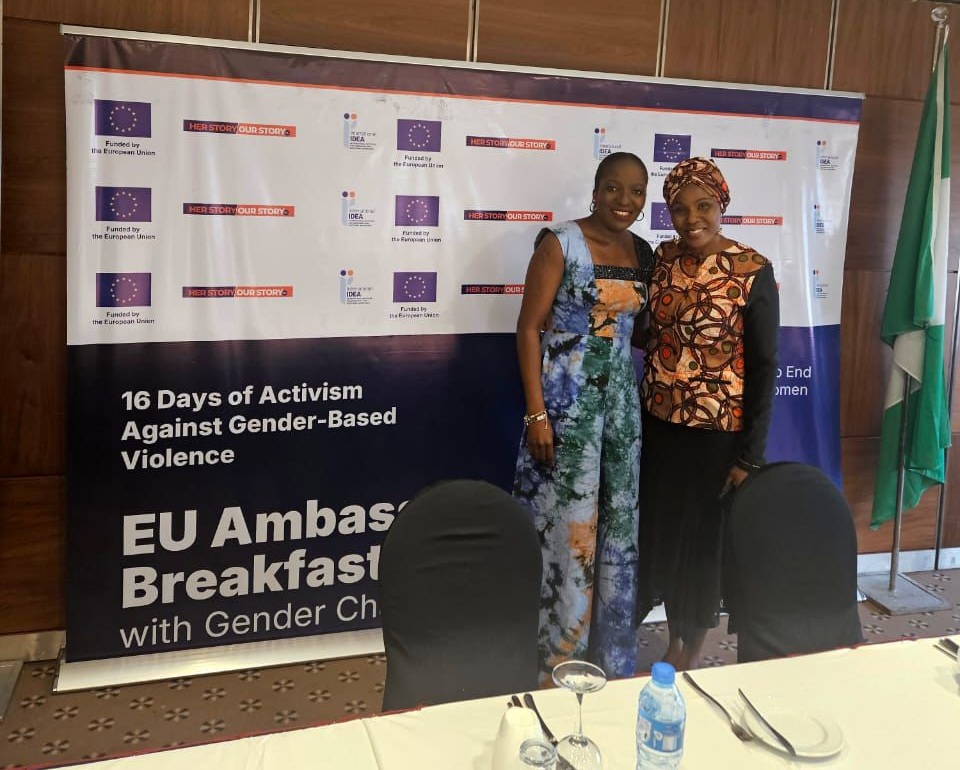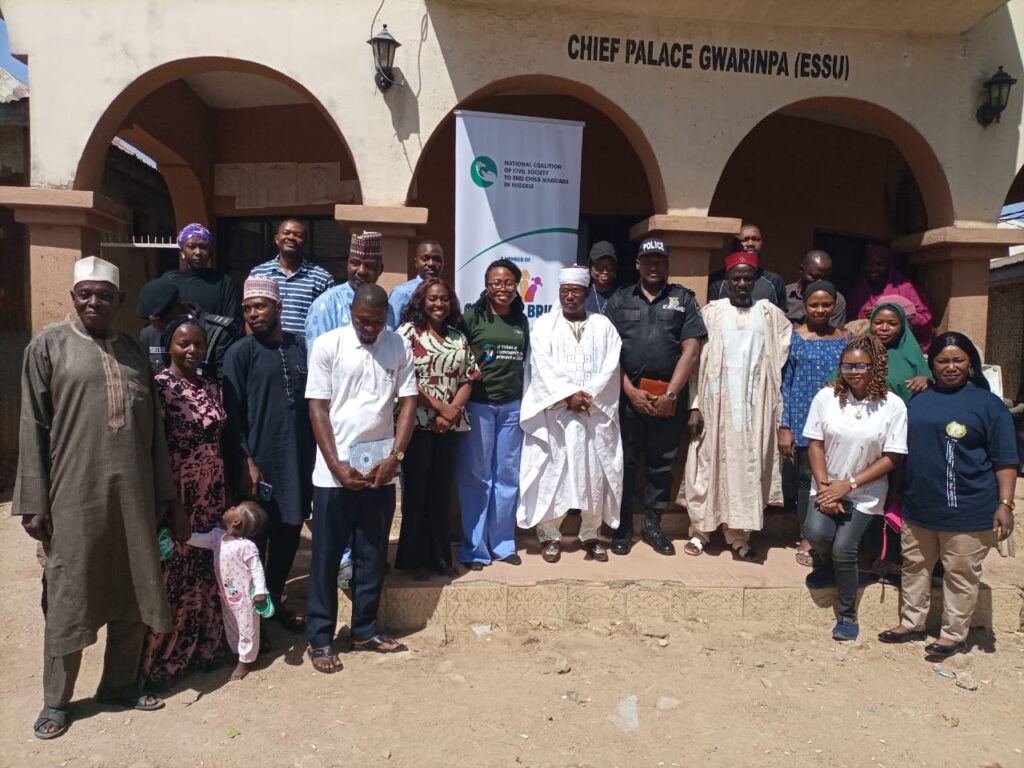
WOTCLEF’S MEMORANDUM FOR THE BILLS FOR AN ACT TO ESTABLISH CHILD RIGHTS WELFARE COMMISSION FOR THE PROTECTION OF CHILDREN’S RIGHTS AND RELATED MATTERS (HB.558)
AND
A BILL FOR AN ACT TO ESTABLISH NATIONAL CHILD PROTECTION AND ENFORCEMENT AGENCY AND TO PROVIDE NECESSARY PROTECTION AND CARE FOR THE NIGERIAN CHILD AND RELATED MATTERS (HB.2090)
WOTCLEF Executive Director, received invitation by Honourable Kafilat Adetola Ogbara, the Chairman Committee on Women Affairs and Social Development to the House of Representatives Wing of the National Assembly Complex, on Wednesday July 23, 2025 to a public hearing and submission of a memorandum reference to the above subject matter.
Though the fear duplication of mandate and status of the National Agency for the Prohibition of Trafficking In Persons (NAPTIP), WOTCLEF observed that since NAPTIP is solely on Human Trafficking the Commission is solely for children.
Moreso, the Commission aligns with the long time ago recommendations of the Convention on the Rights of Children
Looking through the documents, WOTCLEF Head aligned with and made recommendations based on the Bill:
Excerpt of WOTCLEF’s Presentation:
According to NAPTIP statistics from 2019- 2022, 61% of human trafficking in Nigeria happens internally, and are mostly children while 39% is external with children still trapped as victims.
According to the International Labour Organization, over 24 million Nigerian children are engaged in child labour. A 2022 survey by the Nigerian Bureau of Statistics indicated that 39.2% of children aged 5-17 are involved in child labor. A significant portion of these children, 60.8% of those aged 5-11, are engaged in hazardous work. The agricultural sector is the largest employer of child labor in Nigeria, followed by services and industry.
Key Statistics:
Total child laborers: 24.67 million
Prevalence rate: 39.2% of children aged 5-17 are involved in child labor
Hazardous work prevalence: 22.9% of children are engaged in hazardous labor
Age group with highest involvement: 60.8% of child laborers are between 5 and 11 years old
Rural vs. urban disparity: 44.8% of children in rural areas are involved in child labor compared to 30% in urban areas.
The Child Rights Act (CRA) defines a child as someone under 18 and guarantees rights to survival, protection, development, and participation.
CHALLENGES:
Poverty, malnutrition, lack of access to quality education and healthcare, and exposure to violence, including child trafficking, labor, sexual abuse, child marriage are major concerns.
PROGRESS:
Some positive developments include increased birth registration rates, improved child immunization coverage, and a reduction in child mortality.
SPECIFIC ISSUES:
Child marriage, particularly in conflict zones, and the use of children in armed conflict are serious problems.
COMMUNUAL CHILD:
According to UNICEF, the Nigerian child is often seen as part of the community, expected to respect elders and contribute to household tasks, sometimes leading to exploitation.
Need for Intervention:
Addressing these challenges requires comprehensive strategies focused on improving access to basic services, promoting education and health, and protecting children from all forms of violence and exploitation.
The Bill establishing if it scales through will cover amongst other things the following:
1. Comprehensive Protection of Children’s Rights: The Commission would ensure that children’s rights are protected and promoted, aligning with the United Nations Convention on the Rights of the Child (CRC) and the African Charter on the Rights and Welfare of the Child (ACRWC).
2. Coordination and Oversight: The Commission would coordinate efforts across government agencies, Civil Society Organisations and stakeholders to ensure effective implementation of child welfare policies and programs.
3. Prevention and Response: The Commission would work to prevent child abuse, neglect, and exploitation, and provide support and services for victims.
4. Policy Development and Advocacy: The Commission would develop and advocate for policies that prioritize children’s welfare and well-being.
5. Monitoring and Evaluation: The Commission would monitor and evaluate the effectiveness of child welfare programs and services.
6. Public Awareness and Education: The Commission would raise awareness about children’s rights and promote education on child welfare issues.
7. Support for Vulnerable Children: The Commission would provide support and services for vulnerable children, including those in orphanages, street children, and children with disabilities.
8. Collaboration with International Organizations: The Commission would collaborate with international organizations to leverage resources, expertise, and best practices in child welfare.
9. Accountability and Transparency: The Commission would ensure accountability and transparency in the management of child welfare programs and services.
10. Improved Outcomes for Children: The Commission would work to improve outcomes for children, ensuring they have the opportunity to thrive and reach their full potential.
11. Investigate child labor, child trafficking and the like cases and ensure enforcement of child labor laws
12. Provide support services for children with disabilities
13. Develop programs for rehabilitation and reintegration of children in conflict with the law
14. Collaborate with educational institutions to promote education and retention of children
BENEFITS FOR CHILDREN :
1. Safe and nurturing environments
2. Access to education and healthcare
3. Protection from abuse, neglect, and exploitation
4. Opportunities for growth and development
BENEFITS FOR SOCIETY
1. Breaking cycles of poverty and violence
2. Promoting social cohesion and stability
3. Building a skilled and productive workforce
4. Enhancing national development and progress
RECOMMENDATIONS FROM WOTCLEF PARTICULARLY ON THE ISSUES CHILD ADOPTION TO PREVENT SALE OF CHILDREN AND CHILD TRAFFICKING:
1. A parent or guardian who wishes to travel abroad with a child shall obtain a clearance certificate from the commission.
2. The certificate shall be a requirement for issuance of travel document(s) to any Nigerian child travelling abroad either for short or long stay
3. In addition to lines 8 – 9, the agency shall have offices in all states of the Federation, for easy and more accessibility to the vulnerable children
4. The agency shall collaborate effectively with other law enforcement agencies especially in states where the agency does not have strong presence to enforce the Act
5. Most needed is a social protection system that will potentiate the child rights Act
6. The National Commission for Alimajiris and Out of School Children can be remodeled to serve the purpose of the Commission too
7. Resources can be better utilized and most vulnerable children can be attended to including child soldiers, missing children, migrant children among others
8. The Commission must be built on sincerity and genuineness to provide the required assistance and protection needed by the Nigerian Children particularly the vulnerable children including children with disability, orphans, street and homeless, children living in conflict zones, Internally Displaced Persons Camps.
9. The Mental Health of the children regarding Adverse Childhood Experiences must be addressed through Trauma Informed Care Approach.


